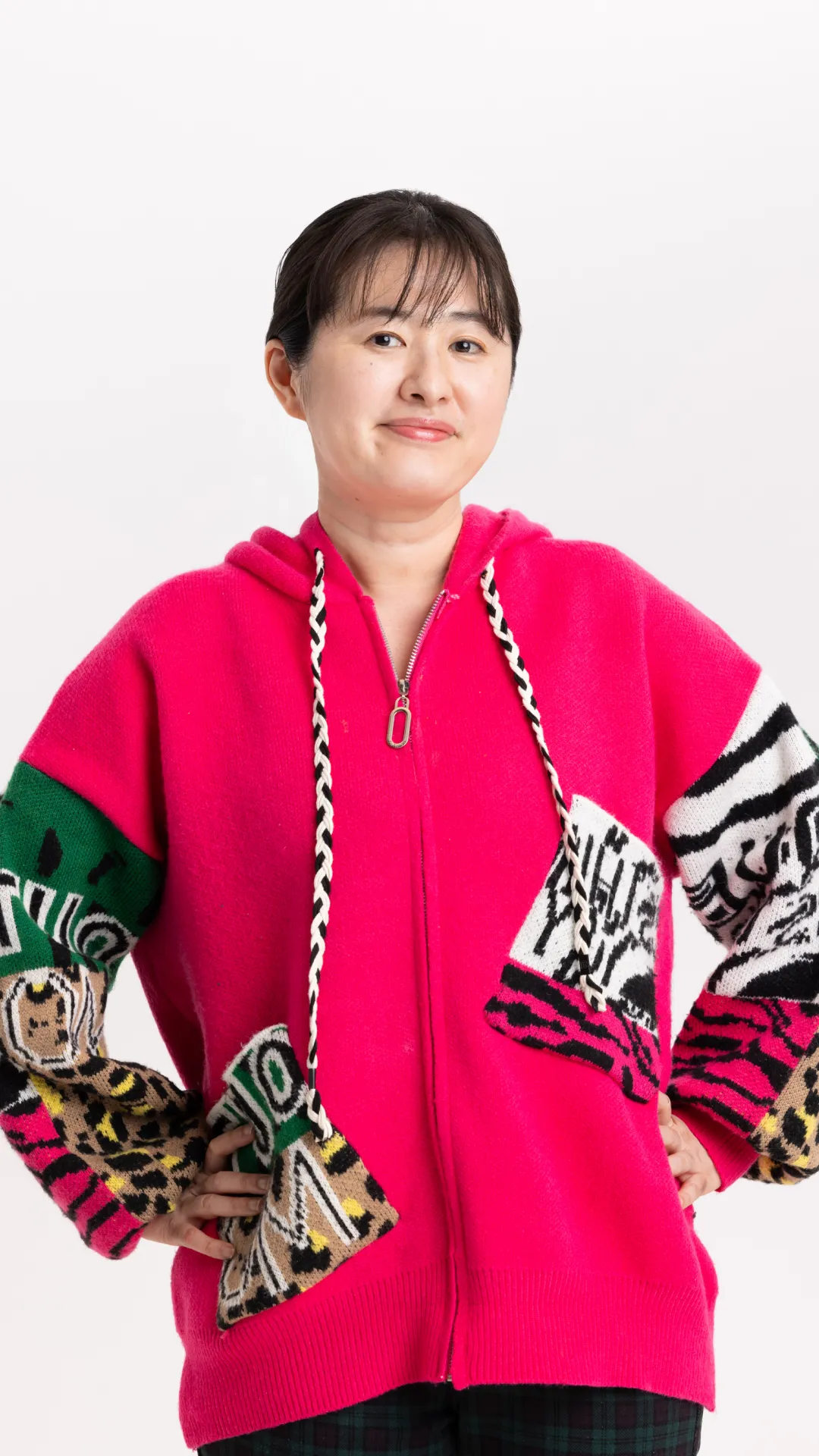INDEX
How the Japanese Literature Boom Aligns with the Book Club Culture
Earlier, you mentioned that there’s a trend where reading books by Japanese female authors is considered “cool.” How is BUTTER being received in this context?
Yuzuki: In contrast to Japan, where it’s marketed differently, BUTTER is being sold overseas as a “feminist novel.” I think the only time the term “feminism” appeared on the cover in Japan was in an essay I wrote. I understand the sales strategy, but more often, the focus is shifted to something broader, like humanism, to appeal to a wider audience.
In the UK, however, it was clearly marketed as both feminist and cool. The tagline was simply a line from the book: “I hate feminism and margarine.” The same strategy was applied in Germany and the US as well.

That one line is what makes it “cool” for international readers.
Yuzuki: I intended it to be a humorous line, but it didn’t really get much of a laugh in Japan. However, in the UK, people found it hilarious. They really enjoy sarcasm, so the combination of a feminist novel with the title BUTTER and the line “I hate feminism and margarine” felt wickedly funny to them. Everywhere I went, people asked me to say that line, and they’d laugh each time.
The cultural differences really come through in moments like this.
Yuzuki: Exactly. Even what people find funny is different, and the way readers interpret the book as depicting the “struggles of men” varies too. In Japan, genres are often divided very precisely, so my book tends to be marketed as “empowering” there. But for some, it might actually feel like an unsettling story. Genre classification is tricky.
It’s like how movies are often marketed as “emotionally moving.” They slap on an easy-to-understand tagline, but the story itself can’t really be neatly categorized.
Yuzuki: Exactly. Abroad, it’s simply called a “novel.” I think people in other countries are more open to works that defy traditional genre boundaries. Also, the story’s setup, where the criminals involve detectives and reporters, is something people there really enjoy. That cultural background plays a big role as well.
Even though I read a lot of novels, when I’m in Japan, I sometimes feel like “I still have so much to learn” or “I can’t participate in certain discussions because I don’t know enough.” But when I’m abroad, it feels like “Anyone who loves books can join the conversation!” I think that’s part of the reason why book clubs are so popular.
I’ve heard that book clubs are popular everywhere.
Yuzuki: BUTTER has become quite popular in book clubs too. In Japan, there’s this idea that you have to be a serious reader to join, but overseas, as long as you’ve read the book, you’re good to go. The focus is really on exchanging thoughts and opinions. There’s a rich history of book clubs that makes it easy for everyone to get involved. It’s like with movies—you might hesitate, thinking, “What if I get scolded for not having seen a classic black-and-white film?”
Overseas, I don’t think there’s that feeling that just reading a book automatically makes you “superior.” It’s more about enjoying the conversation. I love seeing social media posts of book club gatherings where people are reading BUTTER while eating sticky snacks or sushi in unusual ways [laughs]. If it’s that casual, I think even we could have a book club.
























